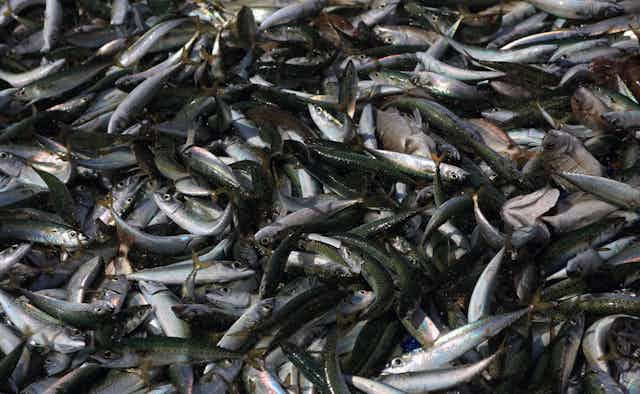Of all of the industries affected by Britain’s membership of the EU, fishing is one of the most significant. The Common Fisheries Policy, which governs where fleets can fish in the EU and sets quotas to conserve fish stocks, is known for being incredibly unpopular. And our recent polling shows that this translates to a near unanimous desire among British fishermen to leave the EU.
To date, most of the evidence of feeling within the fishing industry has been anecdotal. It has been widely known that many in the UK fishing industry, particularly skippers and boat owners, are highly critical of the CFP. And, in May 2016, a campaign group called Fishing for Leave was founded, which aims to withdraw from the EU to restore national control over fishing within British waters. There is no organised group of fishermen campaigning to remain in the EU.
To understand the extent to which skippers and boat owners favour leaving the EU, we conducted a survey in May and June 2016 using Fishermen’s Associations and Producer Organisations to contact their members across the UK in the run-up to the country’s referendum on membership of the EU.
With current polls showing that there is a fairly even split among the general population between those wishing to remain and leave, we found no such split among fishermen. As many as 92% intend to vote to leave the EU – a uniformity of opinion that is unmatched by any other economic or social group in the UK.
% response to the question: ‘How do you think you will vote in the referendum on the UK’s membership of the European Union?’
This view of the EU extends beyond the referendum. We found that while the British public is slightly skewed towards holding a negative image of the EU, fishermen hold an almost entirely negative view of the EU.
% response to the question: ‘In general, what sort of image does the EU conjure up?’
The vast majority of fishermen we spoke to think that leaving the EU will improve the fortunes of their industry. This would suggest that this is a big factor in their decision to vote leave.
% response to the question: ‘In your opinion, how would the UK leaving the EU affect the UK fishing industry?’
Indeed, the fact that over three-quarters of fishermen think that leaving the EU would allow them to catch and land more fish is further testament to the belief that not being subject to the CFP would directly benefit them and their industry.
% response to the question: ‘In your opinion, what impact would the UK leaving the EU have on the amount of fish you and/or your boat are able to catch?’
Unchartered waters
It is too simple to equate leaving the EU and not being subject to the CFP, however, with an automatic and straightforward benefit to the UK fishing industry. Britain’s exit from the EU means that its future access to and membership of Europe’s single market is unclear.
This would quite possibly have a significant impact on the sale of fish to other EU countries – France, Spain and Ireland bought over 140,000 tonnes of UK fish in 2014-15 and account for 36% of the total tonnage exported to the UK’s top 20 export markets.
Plus, the system for managing fish stocks in both UK territorial waters and those EU areas bordering them would need to be renegotiated – and there’s no intrinsic reason why overall quotas would rise. It is also possible that they believe they could benefit from being allowed to land the entire quota of fish, if outside of the CFP, rather than sharing it with other EU-flagged boats.
Our surveys with fishermen suggest that they are relaxed about the impact that leaving the EU would have on the trade of fish. Three-quarters of fishermen believe that leaving the EU would have no detrimental effect on the trade of fish. Indeed, more believe it would improve trade than would hinder it.
% response to the question: ‘In your opinion, how would the UK leaving the EU affect the trade of fish to European countries?’
The data does not provide a robust explanation for reasons for this confidence, but anecdotal discussions with UK fishermen tells us that fish and seafood are much more popular in other EU countries than in the UK, especially in France and Spain, so there would be a robust market demand that could not be met solely by EU fishermen. Hence continued trade would be in the interest of all parties involved.
Of course, whether this actually happens is unclear: despite the economic logic of open trade, the issue might get caught up in the broader positions taken by the EU, which might feel that there is no incentive to give any deal that encourages other member states to seek an exit.
What is clear though is the strength of feeling among fishermen against the EU. It is in marked contrast to farmers who have typically expressed much more mixed attitudes to their equivalent EU policy, the Common Agricultural Policy. But, while farmers’ problems with the EU have been offset by subsidies, fishermen have not seen the same kind of trade-off.
It’s widely recognised that the costs of European integration tend to be concentrated, while benefits are diffuse. Seen in this light, fishermen’s antipathy to the EU is not so surprising.

